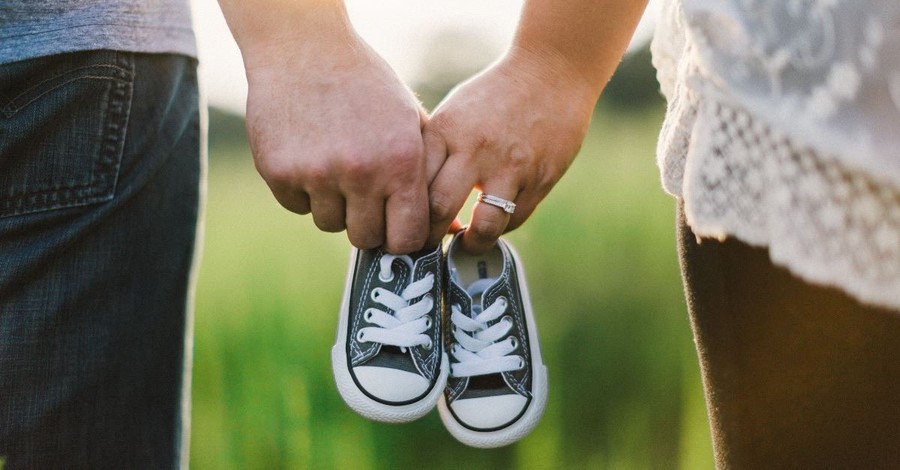

Today is National Sanctity of Human Life Day in the United States. In 1984, President Ronald Reagan issued a proclamation designating January 22 as the first such day. (January 22, 1973, was the day Roe v. Wade legalized abortion-on-demand in all fifty states.)
Since that time, Presidents George H. W. Bush, George W. Bush, and Donald Trump have issued similar declarations. Presidents Clinton and Obama did not.
Forty-six years after Roe v. Wade, we’re still debating abortion in this country.
Last Friday, the March for Life 2019, described as “the world’s largest pro-life event,” was held in Washington, DC. Vice President Pence and his wife made an appearance; President Trump spoke to the group via video.
The next day, the 2019 Women’s March gathered in our nation’s capital to advance several agendas, including the protection and expansion of abortion rights. The day after, thousands of churches across America observed Sanctity of Life Sunday. They prayed for an end to abortion, advocated adoption, and supported the sanctity of all human life.
Americans are confused about abortion
The logic against abortion seems simple. Ronald Reagan: “I’ve noticed that everyone who is for abortion has already been born.” Pope Francis states the case succinctly: “The right to life is the first among human rights.”
And yet, public sentiment on this issue remains confused and conflicted.
Last July, an NBC News/Wall Street Journal survey found that 71 percent of Americans (including 52 percent of Republicans) say they oppose reversing Roe. That’s a record high since NBC/WSJ began polling on this issue thirty years ago. Only 23 percent thought the ruling should be overturned, a record low. Another recent poll found that Planned Parenthood is the second-most popular institution in America, following only the FBI.
However, a survey earlier this month reported that three in four Americans support substantial abortion restrictions. Seventy-five percent (including 60 percent of Democrats) say abortion should be limited to–at most–the first three months of pregnancy. Fewer than a third want the Supreme Court to allow unrestricted abortion. And a majority of Americans oppose any taxpayer funding for abortion.
Why women choose abortion
How can those of us who support the pro-life position persuade those who do not? It’s not enough to proclaim the biblical teaching that life begins at conception. Pro-choice supporters either don’t know what the Bible says, don’t care, or don’t consider its position relevant to this issue.
We need to respond to the arguments that do persuade them. For instance, “Shout Your Abortion” founder Amelia Bonow recently released a video promoting abortion to children. In it, she tells the children about her abortion and explains: “I feel like if I am forced to create a life, I have lost the right to my own life. I should be the one to decide if my body creates a life.”
Here’s the point: from the moment of conception, her body has already created a life.
Reports indicate that women choose abortion for these reasons (in order, beginning with the most popular): they’re not financially prepared; the pregnancy is unplanned; her partner is unsupportive; she needs to focus on her other children and/or her educational or vocational plans; and she wants a better life for her baby than she could provide.
Would a mother put a newborn child to death for any of these reasons?
It seems clear that the women in these surveys do not see their unborn child as a child. That’s the point we need to find persuasive ways to make.
Convincing our culture that an unborn baby is a baby
How can we help our culture see the wisdom of his words?
First, ultrasounds are an option. A recent study showed that some women who were uncertain about having an abortion declined the procedure after viewing an ultrasound of their unborn child. (Those who were already determined to have an abortion were unchanged in their decision.) Unfortunately, ultrasounds do not make clear for everyone the humanity of an unborn child.
Second, scientific evidence that life begins at conception is increasingly clear. As one mother notes, “When you’re seeing a baby sucking its thumb at 18 weeks, smiling, clapping,” it becomes “harder to square the idea that that 20-week-old, that unborn baby or fetus, is discardable.”
Third, the evidence from later-term abortions is obvious. As President Reagan noted, “The abortionist who reassembles the arms and legs of a tiny baby to make sure all its parts have been torn from its mother’s body can hardly doubt whether it is a human being.”
For mothers who believe their unborn baby is a baby, we need to encourage adoption services or provide resources to help her raise her child. We must be pro-life, not just pro-birth.
When the elderly Elizabeth met the pregnant Mary, she told her, “The baby in my womb leaped for joy” (Luke 1:44). Both of their babies were miracles. But God loves every human as much as he loved their babies (Matthew 19:13-15). Including you and me.
“Like a slave in the womb”
On this day after Martin Luther King Jr. Day in America, let’s hear from his niece, Dr. Alveda C. King: “Every aborted baby is like a slave in the womb of his or her mother. The mother decides his or her fate.”
Strong words, but true.
Dr. Mildred Jefferson, the first black woman to graduate from Harvard Medical School, explained her pro-life passion: “The fight for the right to life is not the cause of a special few, but the cause of every man, woman and child who cares not only about his or her own family, but the whole family of man.”
Do you agree?
NOTE: For more on this crucial subject, please see my paper, Abortion and the Mercy of God.
For more from the Denison Forum, please visit www.denisonforum.org.
The Daily Article Podcast is Here!
Publication Date: January 22, 2019
Photo Courtesy: Unsplash











